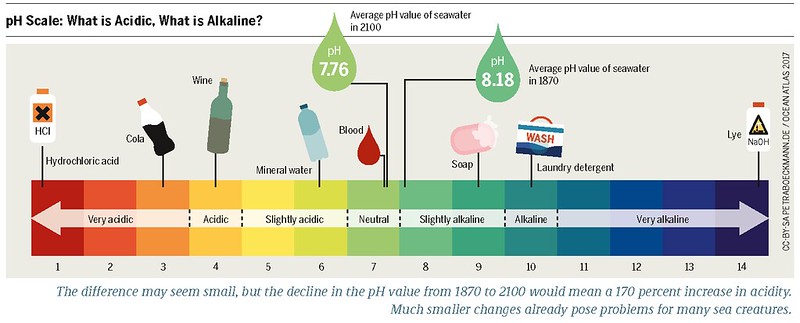The pH of vinegar water is a crucial factor to consider when using this versatile liquid for various purposes, from cleaning to skincare. Vinegar, a weak acid, typically has a pH range of 2 to 3, making it highly acidic. When diluted with water, the pH level of the solution rises, indicating a less acidic mixture.
Understanding the Acidity of Vinegar Water
Vinegar’s acidity is primarily due to the presence of acetic acid, a weak acid that contributes to the low pH. The pH scale ranges from 0 to 14, with 7 being neutral. Substances with a pH below 7 are considered acidic, while those above 7 are basic or alkaline.
The pH of vinegar water can vary depending on the type of vinegar used and the dilution ratio. Distilled white vinegar, commonly used for cleaning, typically has a pH around 2.5, while apple cider vinegar may have a slightly higher pH due to the presence of other compounds from the fermented apple cider.
Identifying the pH of Vinegar Water
To determine the pH of vinegar water, you can use a pH test strip or a digital pH meter. These tools can provide a precise measurement of the acidity level, allowing you to adjust the dilution ratio as needed for your specific application.
When using vinegar water, it’s essential to consider the intended use and adjust the pH accordingly. For cleaning purposes, a 1:1 ratio of vinegar to water is often recommended, while for skincare, a 1:4 ratio (vinegar to water) is generally suggested to avoid skin irritation.
Caring for Surfaces and Skin with Vinegar Water
The pH of vinegar water plays a crucial role in its effectiveness and safety when used for various applications. Here’s a closer look at how the pH affects the use of vinegar water:
Cleaning with Vinegar Water
Vinegar water is a popular cleaning solution due to its disinfecting and deodorizing properties. The acidic nature of vinegar helps to break down grease, remove stains, and kill bacteria. However, the low pH can also be damaging to certain surfaces, such as marble or granite, if not diluted properly.
When using vinegar water for cleaning, it’s essential to dilute the solution to a pH level that is safe for the surfaces you’re cleaning. A 1:1 ratio of vinegar to water is a common starting point, but you may need to adjust the dilution based on the specific material you’re cleaning.
Skincare with Vinegar Water
Vinegar water can also be used in skincare routines, as the acidity can help balance the skin’s pH and provide antimicrobial benefits. However, the low pH of undiluted vinegar can be irritating to the skin, leading to dryness, redness, or even burning sensations.
To use vinegar water safely for skincare, it’s recommended to dilute the solution with water in a 1:4 ratio (vinegar to water). This dilution helps to mitigate the acidity while still providing the beneficial properties of vinegar, such as its ability to reduce acne-causing bacteria and improve skin texture.
Alternatives to Vinegar Water
While vinegar water is a versatile and effective solution, there are other acidic alternatives that can be used for similar purposes. Lemon juice and citric acid are two options that can provide similar acidity and disinfecting properties.
Lemon juice has a pH around 2, while citric acid has a pH around 2.2, making them both acidic options. These alternatives can be used in place of vinegar water, with similar dilution ratios and precautions to ensure safe and effective use.
Conclusion
The pH of vinegar water is a crucial factor to consider when using this versatile liquid for cleaning, skincare, and other applications. Understanding the acidity level and adjusting the dilution ratio accordingly can help ensure the safe and effective use of vinegar water, while also preventing damage to surfaces or skin irritation.
By being mindful of the pH and following the appropriate dilution guidelines, you can harness the power of vinegar water to tackle a wide range of cleaning and skincare needs, all while maintaining the delicate balance of acidity.
References:
- Healthline – pH of Vinegar: Acidity and Strength: https://www.healthline.com/health/ph-of-vinegar
- Greatist – pH of Vinegar: What Makes It Acidic? Plus, Strength of Vinegar: https://greatist.com/health/ph-of-vinegar
- Healthline – Is Vinegar an Acid or Base? And Does It Matter?: https://www.healthline.com/nutrition/vinegar-acid-or-base

